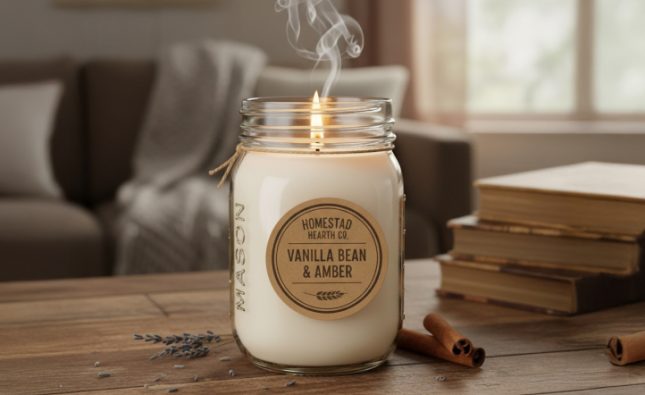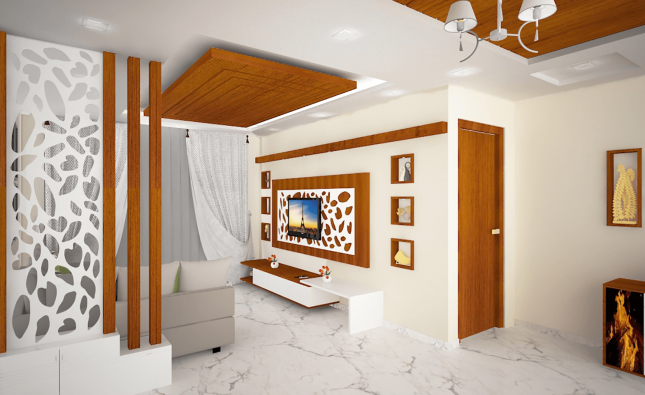
Introduction
A tidy living room, clear countertops, air that smells like cedar instead of chemicals eco-minimalist décor promises all three at once. The idea is simple: keep only what you love, choose earth-kind materials, and arrange them for calm flow. You save money, cut clutter, and lighten your environmental impact in one weekend project or steady month-by-month makeover.
This guide walks you through practical steps to create an eco-minimalist home that still feels warm and personal. We cover furniture sourcing, smart paint choices, energy-wise lighting, and small daily habits that keep spaces serene. Each tip uses plain language, so even first-time renters or busy parents can apply it without hiring an interior designer.
Why Eco-Minimalism Beats Plain Minimalism

Less Stuff, Less Waste
Traditional minimalism cares about clean lines but may use brand-new plastic furniture. Eco-minimalism asks: “Where did this come from? Where will it go?” By choosing reclaimed wood or secondhand pieces, you keep items circulating and forests standing.
Step-by-Step Path to an Eco-Minimalist Home

1. Declutter with a Green Mindset
Sort and Donate
Move room by room, placing items into three piles: keep, repair, pass on. Local thrift stores, Buy Nothing groups, or textile recycling bins keep usable goods from landfill.
Digital Declutter
Minimalism extends to digital devices. Unplug rarely-used electronics or switch them off at a power bar to save “phantom” energy.
2. Choose Earth-Friendly Materials
Sustainable Wood
Look for FSC or PEFC certification. Bamboo grows fast and works for shelves or flooring. For a rugged dining table, salvaged barnwood offers history without fresh logging.
Natural Textiles
Organic cotton, linen, hemp, and responsibly sourced wool beat polyester in breathability and breakdown. A simple linen curtain filters light and biodegrades at end of life.
Non-Toxic Finishes
Pick paints labeled zero-VOC. For sealing wood, try natural oils like tung or beeswax instead of polyurethane.
3. Furniture: Fewer Pieces, More Purpose
| Room | Essential Piece | Eco Swap | Function |
|---|---|---|---|
| Living | Modular sofa with washable covers | Upcycled pallet daybed + organic cotton slipcover | Seating + guest bed |
| Dining | Six-seat table | Reclaimed door on metal trestles | Meals + workspace |
| Bedroom | Bed frame | Untreated pine platform | Sleep + under-bed storage |
| Office | Desk chair | Vintage wooden chair with hemp cushion | Work + accent |
Multi-use items reduce total furniture count and maximize floor flow.
4. Color Palette and Visual Calm

Nature-Inspired Hues
Soft greens, clay tones, and warm whites mimic forests and coastlines. They bounce daylight and expand tight corners.
5. Lighting That Saves Energy and Sets Mood
Layer Daylight
Place mirrors opposite windows to double natural rays. Use sheer linen curtains for privacy yet bright rooms.
6. Indoor Plants: Décor That Cleans Air
Choose low-maintenance varieties like pothos, snake plant, or ZZ plant. They add texture, absorb VOCs, and underscore the link to nature. Pot them in clay or recycled glass jars for waste-free containers.
7. Smart Storage to Keep Surfaces Clear

Vertical Thinking
Tall, open bookshelves made from reclaimed timber store books, tools, and baskets. The eye moves upward, making ceilings feel higher.
Hidden Zones
Under-sofa bins or bed drawers hold offseason clothes. Label boxes to avoid fresh clutter when searching later.
8. Energy-Wise Room Layout
Place seating near windows to use daylight for reading. Position desks perpendicular to light to cut screen glare. Keep radiators clear of bulky sofas so heat circulates freely, trimming winter bills.
9. DIY Upcycling Projects
- Turn glass sauce jars into spice holders—sand the labels, paint lids.
- Refinish a scratched table with citrus-based stripper, sand, and linseed oil.
- Stitch scrap fabric into cushion covers; mix patterns but keep color family consistent.
Upcycling adds personality while keeping items out of trash streams.
10. Daily Habits That Sustain Simplicity

- Return items to their “home” before bed.
- Operate a one-in, one-out rule for décor purchases.
- Run laundry on full loads at cold temperature; hang dry to save power and preserve fabrics.
Consistency stops clutter return and builds mindful consumption.
Budget Breakdown: Eco-Minimalist Living Room
| Item | Source | Cost (USD) | Lifespan | Notes |
|---|---|---|---|---|
| Vintage wood coffee table | Facebook Marketplace | 60 | 20 yrs | Re-oiled yearly |
| Hemp area rug | Fair-trade co-op | 140 | 10 yrs | Biodegradable |
| LED floor lamp | Energy-Star outlet | 45 | 15 yrs | 9 W bulb |
| Secondhand sofa frame | Thrift | 120 | 15 yrs | Added organic cover |
| Plant trio | Local nursery | 30 | — | Ongoing care |
| Total | $395 | — | Under $400 for full room |
Conclusion
Eco-minimalist décor blends two winning goals: a calmer house and a healthier planet. By decluttering mindfully, selecting natural materials, and adopting energy-smart habits, you craft rooms that breathe and stay tidy with little effort. Start small—swap one plastic storage bin for a reclaimed-wood shelf, or switch old bulbs to warm LEDs. Each tiny change layers into lasting comfort, savings, and earth care.
Call to Action: Pick one room, set a weekend challenge to donate five items, add one natural-fiber piece, and feel the serene difference by Monday.










